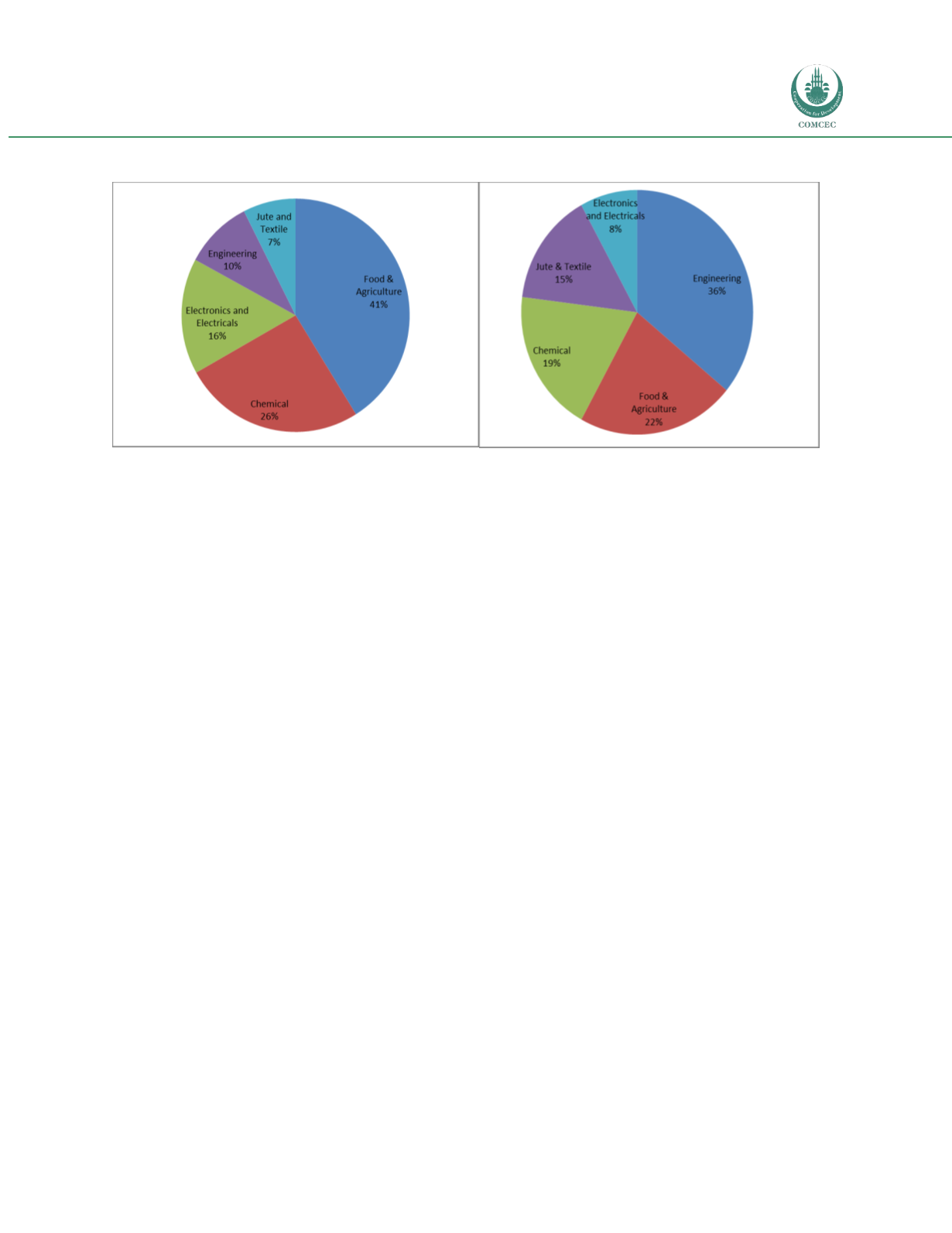

Strengthening the Compliance of the OIC Member States
to International Standards
77
Figure 37: Sector-wise breakdown of mandatory and voluntary product standards in Bangladesh
Source: BSTI, own calculations. Note: Sectoral data are not available for all standards.
Figure 37 reveals that the sector-wise distribution of mandatory standards in Bangladesh is dominated
by the food/agricultural and chemical sectors, which account for two-thirds of all mandatory standards.
Engineering and food/agriculture account for nearly 60% of 1,527 voluntary standards for which
sectoral information is available. Interestingly, the textiles sector that accounts for 80% of the country’s
export earnings has only 7% of total mandatory and 15% of total voluntary standards issued by the
BSTI.
Testing and certification procedures for mandatory standards are the same for domestic and imported
products. In exercising the power conferred by the Bangladesh Standards and Testing Institution
Ordinance 1985, BSTI develops national standards for products and services. In theory, Bangladesh
allows the sale of products that comply with standards issued by an international organization if there is
no relevant domestic standard, but in practice, the sale of such products requires a certificate from the
BSTI.
Bangladesh has also notified the WTO of its acceptance of the Code of Good Practice of the WTO
Agreement on Technical Barriers to Trade. BSTI is Bangladesh’s WTO TBT national enquiry point. It has
an internal committee on WTO affairs and participates in the working groups on WTO agreements in the
Ministry of Industries and Ministry of Agriculture. BSTI works on the implementation of the TBT
Agreement, while the Ministry of Commerce is responsible for the implementation of the SPS
Agreement.
















